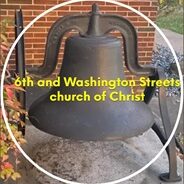Faith stands at the very heart of our Christian journey. Hebrews 11:1 beautifully defines it: “Now faith is the substance of things hoped for, the evidence of things not seen.” This verse anchors our understanding of faith as both tangible assurance and invisible conviction. It beckons us to trust in the unseen promises of God, laying a foundation for a life rooted in the truth.
Let’s break down the words of this verse even more that we may come to a greater grasp of what faith actually is in accordance with the Word of God:
The word “substance” in Hebrews 11:1 conveys a foundation or a firm reality upon which hope is built. This suggests that faith is not a fleeting emotion or abstract thought but a solid, tangible assurance in the promises of God. This assurance is not based on human perception or evidence but rooted in the very nature and character of the Lord. The Psalmist echoes this in Psalm 18:2, declaring, “The Lord is my rock, my fortress and my deliverer,” reinforcing that faith is grounded in God’s unchanging reliability.

The “evidence” described here is a spiritual conviction, an unwavering belief in things unseen. This challenges the natural human tendency to rely on visible proof and invites a deeper, spiritual perspective. Consider 2 Corinthians 5:7, “For we live by faith, not by sight.” Faith bridges the gap between physical and spiritual. It enables us to perceive the reality of God’s work even when it’s hidden from worldly view.
Faith and hope are inseparable companions, and their interconnection is emphasized throughout Scripture. Romans 15:13 beautifully ties these concepts together: “May the God of hope fill you with all joy and peace as you trust in him, so that you may overflow with hope by the power of the Holy Spirit.” Through faith, hope flourishes, providing strength in trials and joy in anticipation. Faith begins with hope—a confident expectation grounded in God’s character and promises. This is demonstrated in Romans 8:24-25, which reminds us, “For in this hope we were saved. But hope that is seen is no hope at all. Who hopes for what they already have? But if we hope for what we do not yet have, we wait for it patiently.” Faith enables us to navigate the unseen with patience, trusting God’s sovereign hand.
Faith is inherently active; it demands demonstration through obedience and service. Hebrews 11 briefly records the lives of those whose faith transformed their actions—Abraham journeyed to an unknown land, Noah built the ark, and Moses led Israel out of Egypt. Their faith inspired bold actions, grounded in trust in God’s guidance. Similarly, James 2:18 urges us, “Show me your faith without deeds, and I will show you my faith by my deeds.” True faith compels God’s children to respond to His call with active devotion.
Moreover, faith is evidence, a conviction about spiritual realities we cannot touch or measure. Through faith, we perceive God’s hand in creation, as stated in Hebrews 11:3: “By faith we understand that the universe was formed at God’s command.” Like the heroes of faith listed in Hebrews 11, we too are called to live in faithful obedience, trusting that God’s promises will come to fruition.
Faith also moves us action. James 2:17 challenges us: “Faith by itself, if it is not accompanied by works, is dead.” Genuine faith moves beyond mental assent, manifesting in lives marked by love, service, and trust in Christ as God’s Son, our Savior, Redeemer and King.
In sum, faith is the foundation, evidence, and motivating force of the Christian life. It is a gift from God, empowering us to trust in His promises, embrace spiritual realities, and act boldly in obedience. As disciples of Jesus, we are invited to build our lives on this foundation, anchoring ourselves in the hope and assurance of His eternal faithfulness. May Hebrews 11:1 continually inspire us to deepen our faith and live out its transformative power every day.
![]()
